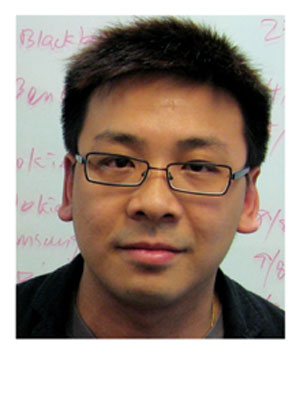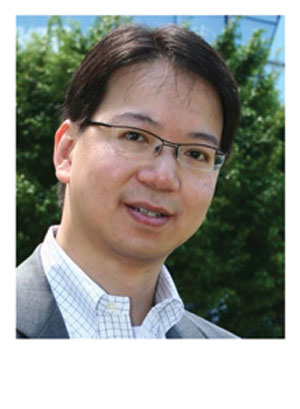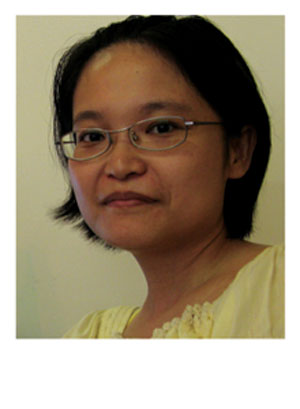(bc Magazine) Brave New World. By Hamish McKenzie. October 5, 2006.
Though Hong Kong is one of the most wired cities in the world, it’s taken a while for the local Chinese population to catch on to blogging. But a sudden detonation of media interest has shunted local bloggers out of the realm of mere cyber jotters and into the public consciousness. Not that the English-reading world would notice…
Strangely enough, it took an English-language blogger to turn local media attention to his Chinese-language counterparts. Until Roland Soong appeared in a four-page spread in the glossy Next Weekly magazine in December last year, local bloggers got short shrift from the media, dismissed by one cable TV channel as mere “online diarists”. Stung by the condescension, Hong Kong’s blogosphere went up in arms. “It was enough to make people cough blood!” cried Sidekick in a post linked to and translated by Soong on his prominent EastSouthWestNorth blog (www.zonaeuropa.com) in April 2005. It probably hurt all the more because it was among the first of what had been scant coverage of the local blogosphere. In response, bloggers mobilised with a letter-writing campaign to the press, explaining they were serious people contributing worthwhile commentary and analysis – a fact exemplified by Soong, whose ESWN receives a staggering 15,000 visits per day from an international following. With up-to-date translations of important and quirky Chinese stories, Soong, 57, acts simultaneously as journalist, tipster, and gateway to a world not easily accessed by non-Chinese readers.
But if it weren’t for ESWN and an interview on BBC radio that alerted the publisher of Next Weekly to Soong’s existence, the word ‘blog’ might still be a mystery to much of Chinese Hong Kong. In fact, only in the last few months have local media started to take notice of blogs, says Soong. Now it seems they’re making up for lost time – the anonymous Central Blogger (centralblogger.blogspot.com), also a columnist for the free am730 daily newspaper, says the local media is now “crazy about bloggers”. Newspapers and magazines carry opinion and coverage of the blogosphere on a daily basis. Soong calls it a “tidal wave,” and it’s already had a noticeable effect. “I’ve been watching Hong Kong bloggers grow very, very rapidly compared to the rest of the world,” he says.
Truth is, local Chinese were a bit slow to twig on to blogs in the first place. Considering Hong Kong has nearly 5 million Internet users, that might come as a surprise. But according to the experts, local lifestyles and language problems were to blame. Blogs take time, commitment, and maintenance, explains Dr. Louis Leung of the University of Hong Kong’s department of journalism and communication. “I think the lifestyle is so hectic – they don’t really have time to sit down and write and respond.” Charles Mok (charlesmok.blogspot.com), a blogger and chairman of the Hong Kong Internet Society agrees, but also points to a difficulty in expression. “The biggest problem in Hong Kong – with Chinese or English – is that we can get by in both languages but we’re not good in either one.” It might also be that Hong Kongers, preoccupied with their jobs and families, just don’t care. That’s a view held by Angus Ho, 34, who blogs under the name Dukedom of Aberdeen (blog.age.com.hk). “They don’t think about things around them, like politics, the media, or their community,” he says.
Thus blogs were less popular than Internet forums and message boards, which are better suited to people with shorter attention spans. Mok says the quick-fix nature of forums allows users with limited language skills to be part of an online community, where people can contribute such considered opinions as “I love it!” or “This is stupid!” in snappy one-liners.
But with improving usability and sophisticated blog providers, alongside heavy promotion from the likes of MSN and Yahoo!, the popularity of blogs in Hong Kong is on the up – and the ‘serious’ bloggers are only a small percentage of the community. Others, such as florist Io Lee, blog for smaller audiences as a way to get their writing published and communicate with friends. “You are not talking to yourself. You are not alone,” says Lee, 37, who uses her blog to publish her creative writing, including some plays. “Someone will respond to you any time – you don’t have to make appointments.” As a result, she’s fielded requests from New York, Los Angeles, Canada and Taiwan to perform her plays. Meanwhile, Commercial Radio host Jessie You See Hand, 29, sees her blog, which is among the top 40 ranked Yahoo! blogs in Hong Kong, as another medium to help educate people. Jessie wants her blog, much like her early morning radio shows, to help young people better understand themselves. She sees it as a virtual meeting place for fans and readers, where she can facilitate discussion about matters related to self-exploration. Blogs are a positive force for young people: “I think it’s a good thing. Some of them don’t like to talk, but on a blog they’re more willing to express themselves.”A Landmark and a Tidal Wave
Probably the major force driving up the popularity of blogs in Hong Kong is the recent wave of attention catalysed by Soong’s interview with Next Weekly. These days, most Chinese-language newspapers and some magazines have sections devoted to covering stories from the Internet. Often, the papers will simply republish entire blog posts without seeking permission from the blogger or offering any compensation. Most bloggers don’t seem to mind, says Soong, because they get free publicity and affirmation of their work. The Duke of Aberdeen, Angus Ho, has been quoted in the mainstream media a number of times. After his first mention in the Apple Daily, Hong Kong’s second-largest selling newspaper, Ho’s readership doubled, but the numbers quickly dropped off. Then, in July, came what Soong refers to as a “landmark” for local bloggers. Popular Hong Kong Economic Journal columnist Kong Shaolin in his farewell column recommended nine blogs for people to read in his absence. Ho’s blog, ESWN and the Central Blogger were among them. Immediately, the Duke of Aberdeen’s readership jumped by 60 to 70 percent, but this time the numbers didn’t drop so fast, and many stayed on, giving Ho something of a base. Today his site receives about 600 visits a day.Ho has fielded several interview requests from the mainstream media, and opinions from his blog have been published without his permission. He doesn’t mind, provided he gets adequate attribution. In fact, he thinks it’s good bloggers are increasingly cited in the press, because it means their opinions are being taken seriously. He’s not sure, though, it’s not just laziness by the media looking to use bloggers as a way to gauge public opinion. Soong suggests that covering bloggers is a cheap and easy way for newspapers to reach out to a readership increasingly favouring the Internet as a news source. Sometimes, though, referencing can blur into outright rip-off. Ho says he was a victim of plagiarism at the hands of a newspaper columnist, who used similar ideas and wording to an article Ho posted on his blog. He alerted the newspaper’s editor by email and fax but received no reply. He decided to take no further action and thinks it’s not worth suing: “It’s wasting time.”
Despite increasing visibility in the mainstream media, however, bloggers still feel their influence is limited. “I don’t think it’s really impacting the media in a big way yet,” says Charles Mok. “I still think that [blogging is] more powerful as a personal expression.” Ho is also circumspect. “I think we are getting more and more awareness but, compared with mainstream media, we have a long way to go.”They can, however, have influence as tipsters, offering leads to stories reporters might otherwise miss. Ho can think of 10 to 20 times ideas on his blog have led to stories in the mainstream media, but still thinks his influence is minimal: “I’m only one of the bloggers,” he says. Soong, whose readership is known to include foreign correspondents, excels as a tipster. “For them I would be a sentinel; the person who’s giving a heads-up on what’s going to be a big story – especially related to the Internet.” But that doesn’t mean he holds sway over what gets reported. As he explained in a recent post entitled ‘Influencing Foreign Correspondents’, “For a full story, a foreign correspondent still needs to establish and verify the facts (for example, having two or more ‘independent sources’) as well as decide whether the story is newsworthy for his/her readers.”
One SAR, Two Blogospheres
Though ESWN bridges the gap between Chinese and English Hong Kong bloggers to some extent, until two weeks ago there had been no interaction between the two blogospheres. “The relationship is mostly asymmetrical,” explains Soong. “The Chinese bloggers can read English but not vice versa. The English bloggers are mostly writing in a context that the Chinese bloggers are indifferent to.”
However, the divide was crossed for the first time late last month when both Chinese and English rallied in support of English-language blog Not The South China Morning Post (www.ntscmp.com), which some believed was blocked by telecommunications companies Hutchison Global Communications and Netvigator in response to unfavourable coverage. NTSCMP, a satire site, frequently pokes fun at billionaire Li Ka-shing and his son Richard, among others. A crudely-doctored photo posted on the site, for instance, showed Richard Li standing beside a Scottish road-sign with the place name ‘Twatt’ and an arrow pointing in his direction. George Adams, who insists on being called NTSCMP’s founding editor, imagined the photo may have upset the Li family, who just happen to own HGC and Netvigator, resulting in the alleged censorship. Users from other Internet service providers had no difficulty accessing the site. After Hong Kong blogger Mister Bijou (misterbijou.blogspot.com) and Soong drew attention to the case – neither endorsing nor rejecting Adams’ claims – NTSCMP received a flood of support from freedom of speech supporters. At least seven leading local bloggers, including the Duke of Aberdeen, commented on the affair. Soong, while expressing skepticism about Adams’ claims, used his blog to challenge the ISPs to issue a statement promising they would never ban a website, period. Adams said the Chinese bloggers had been very supportive. “We have had a lot of reaction now from the Chinese world,” he said at the time.Whether or not Adams’ claims stack up is another story. While many HGC and Netvigator users couldn’t access the NTSCMP site, others – including this magazine – experienced no such trouble. Furthermore, the offending photo was first posted in June. That it would be September by the time HGC and Netvigator responded seems, at the very least, suspiciously sluggish. Within two days of Adams posting his claims, the Duke of Aberdeen found evidence a problem with the NTSCMP website could be to blame – but he was reluctant to jump to conclusions. “Did ntscmp.com fool us?” Ho asked, in a translation provided by Soong on ESWN. “I don’t know. I don’t particularly like to clear Netvigator, but I must respect the facts. The facts are that there is insufficient evidence to support what ntscmp.com says on its website.” Charles Mok and the Internet Society were similarly unconvinced of any blocking by the ISPs.
Regardless of the veracity of Adams’ claims, they set the stage for what was probably the first case of interplay between Hong Kong’s Chinese-language and English-language blogospheres. Says Ho, “I have never encountered this kind of interaction before.” For the first time, that divide was bridged – and the burgeoning Chinese-language blogosphere reached another new audience. Perhaps it’s a sign of things to come.
Name:
Roland Soong
Interests:
Politics, media, China
Quote:
“I’ve been watching Hong Kong bloggers
grow very, very rapidly”
EastSouthWestNorth
http://www.zonaeuropa.com
Name:
Angus Ho
Interests:
Writing, media, films
Quote:
“We are getting more and more awareness but
... we have a long way to go.”
The Dukedom of Aberdeen
http://blog.age.com.hk
Name:
Charles Mok
Interests:
Internet, information technology, writing
Quote:
“I still think that it’s more powerful as a personal expression.”
http://charlesmok.blogspot.com
Name:
Io Lee
Interests: Playwriting, films, music, books
Quote:
“You are not talking to yourself. You are not alone.”
http://hk.myblog.yahoo.com/iz-flower